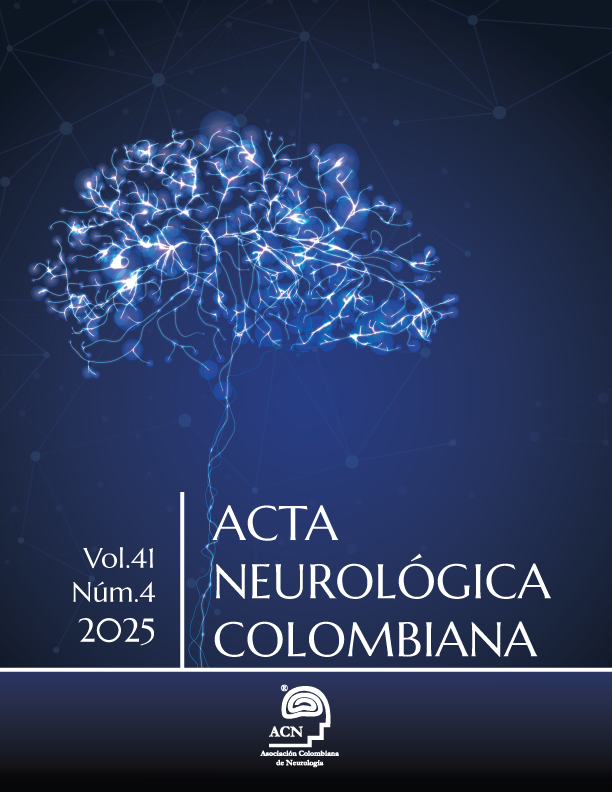Abstract
Introduction: Schmahmann syndrome (SCAC) is an affectation of the cerebellum that includes cognitive and affective alterations, impaired executive function, visuospatial processing deficiencies, language deficits, and affective alterations. The diagnosis is mainly neuropsychological and supported by neuroimaging studies such as magnetic resonance imaging.
Case presentation: This case presents a 27 years old patient with a history of substance use since the age of 16 and HIV-positive. Difficulties in the pronunciation of phonemes are reported, perform movements with right limbs, right lateropulsion, left horizontal binocular diplopia and with the presence of dizziness. Speech with scandid dysarthria, dysmetria, dysdiadochokinesia and hypotonia of the right extremities stand out.
Discussion: A neuropsychological examination is performed using the scale of the cerebellar cognitive affective syndrome, the complex figure of Rey and the Beck depression test. The results show a probable association for SCAC, reaffirmed by magnetic resonance imaging studies, which indicate lesion in the right cerebellar hemisphere extending to the middle peduncle and bilateral dorsal bridge. In addition, planning problems related to memory problems, difficulty in engaging words, phonemic naming impairment and the presence of mild depression, which support the diagnosis.
Conclusions: This case allows us to consider cerebellar pathologies that extend to typical functions of the brain, emphasizing the use of neuropsychological evaluations to detect subtle deficits that are usually overlooked when recognizing a SACC.
References
Sankey E, Srinivasan E, Mehta V, Bergin S, Wang T, Thompson E, et al. Perioperative assessment of cerebellar masses and the potential for Cerebellar Cognitive Affective Syndrome. World Neurosurg. 2020;144:222-30. https://doi.org/10.1016/j.wneu.2020.09.048
Schmahmann JD, Sherman JC. The cerebellar cognitive affective syndrome. Brain. 1998;121(4):561-79. https://doi.org/10.1093/brain/121.4.561
Manto M, Mariën P. Schmahmann's syndrome-identification of the third cornerstone of clinical ataxiology. Cerebellum Ataxias. 2015;2:2. https://doi.org/10.1186/s40673-015-0023-1
Stoodley C, Schmahmann J. Evidence for topographic organization in the cerebellum of motor control versus cognitive and affective processing. Cortex. 2010;46(7):831-44. https://doi.org/10.1016/j.cortex.2009.11.008
Levisohn L, Cronin-Golomb A, Schmahmann J. Neuropsychological consequences of cerebellar tumour resection in children: cerebellar cognitive affective syndrome in a paediatric population. Brain. 2000;123(5):1041-50. https://doi.org/10.1093/brain/123.5.1041
Argyropoulos G, van Dun K, Adamaszek M, Leggio M, Manto M, Masciullo M, et al. The cerebellar cognitive affective/Schmahmann syndrome: a task force paper. Cerebellum. 2020;19(1):102-25. https://doi.org/10.1007/s12311-019-01068-8
Tedesco A, Chiricozzi F, Clausi S, Lupo M, Molinari M, Leggio M. The cerebellar cognitive profile. Brain. 2011;134(12):3672-86. https://doi.org/10.1093/brain/awr266
Bodranghien F, Bastian A, Casali C, Hallett M, Louis E, Manto M, et al. Consensus paper: revisiting the symptoms and signs of cerebellar syndrome. Cerebellum. 2016;15(3),369-91. https://doi.org/10.1007/s12311-015-0687-3
Abderrakib A, Ligot N, Naeije G. Cerebellar cognitive affective syndrome after acute cerebellar stroke. Front Neurol. 2022;13:906293. https://doi.org/10.3389/fneur.2022.906293
Hoche F, Guell X, Vangel M, Sherman J, Schmahmann J. The cerebellar cognitive affective/Schmahmann syndrome scale. Brain. 2018;141(1):248-70. https://doi.org/10.1093/brain/awx317
Baillieux H, De Smet H, Dobbeleir A, Paquier P, De Deyn P, Mariën P. Cognitive and affective disturbances following focal cerebellar damage in adults: a neuropsychological and SPECT study. Cortex. 2010;46(7):869-79. https://doi.org/10.1016/j.cortex.2009.09.002
Schmahmann J, Weilburg J, Sherman C. The neuropsychiatry of the cerebellum-insights from the clinic. Cerebellum. 2017;6(3):254-67. https://doi.org/10.1080/14734220701490995
Wolf U, Rapoport M, Schweizer T. Evaluating the affective component of the cerebellar cognitive affective syndrome. J Neuropsychiatry Clin Neurosci. 2009;21(3):245-53. https://doi.org/10.1176/jnp.2009.21.3.245
Ahmadian N, van Baarsen K, van Zandvoort M, Robe PA. The cerebellar cognitive affective syndrome-a meta-analysis. Cerebellum. 2019;18(5):941-50. https://doi.org/10.1007/s12311-019-01060-2
Schmahmann JD. Ferdinando Rossi lecture: the cerebellar cognitive affective syndrome-implications and future directions. Cerebellum. 2023;22(5):947-53. https://doi.org/10.1007/s12311-022-01456-7

This work is licensed under a Creative Commons Attribution-NonCommercial-NoDerivatives 4.0 International License.


